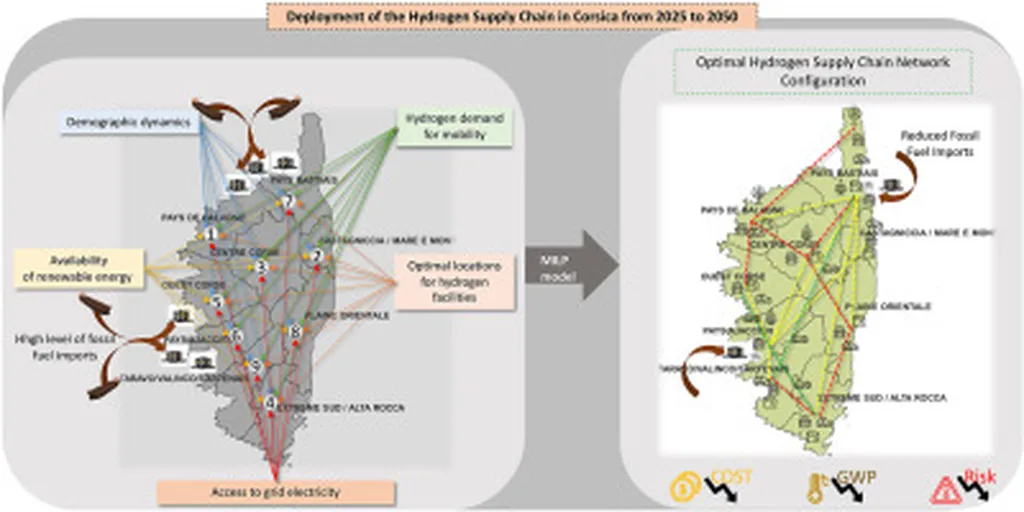Researchers from the University of Corsica, including Tchougoune Moustapha Mai, Mohamed Hajajji, Catherine Azzaro-Pantel, Maude Chin Choi, and Christian Cristofari, have developed a strategic framework for planning hydrogen supply chains (HSC) in island contexts. Their work, published in the International Journal of Hydrogen Energy, focuses on creating a sustainable and efficient hydrogen infrastructure for Corsica by 2050.
The researchers employed a multi-objective approach using Mixed-Integer Linear Programming (MILP) over multiple time periods to minimize total system cost, greenhouse gas (GHG) emissions, and a risk index. This method allows for a comprehensive evaluation of different scenarios, considering various factors such as site selection, capacity sizing, and technology choices. Geographic Information Systems (GIS) were used for spatial analysis and infrastructure locating, ensuring that the proposed hydrogen supply chain is well-integrated with the island’s geography.
The study highlights the importance of water availability and tourism-induced demand variation in energy planning for insular regions. By incorporating these factors, the researchers aim to create a resilient and adaptable hydrogen supply chain that can meet the unique challenges of island contexts. The proposed solution, based on the m-TOPSIS multi-objective decision-making method, suggests a decentralized infrastructure with a levelized cost of hydrogen of 6.55/kg and greenhouse gas emissions under 2 kgCO2e/kg H2.
For the energy sector, this research offers practical applications in the development of hydrogen supply chains, particularly in isolated or island contexts. By providing a strategic framework that considers multiple objectives and constraints, the study can help energy companies and policymakers make informed decisions about hydrogen infrastructure planning. The focus on minimizing costs, emissions, and risks can contribute to the creation of sustainable and efficient energy systems, ultimately supporting the transition towards a low-carbon economy.
In summary, the researchers from the University of Corsica have developed a comprehensive approach to hydrogen supply chain planning for island contexts, with a case study focused on Corsica. Their multi-objective framework considers various factors and constraints, providing valuable insights for the energy sector in the development of sustainable and efficient hydrogen infrastructure. The study was published in the International Journal of Hydrogen Energy, offering a robust methodology for future research and practical applications in the energy industry.
This article is based on research available at arXiv.

